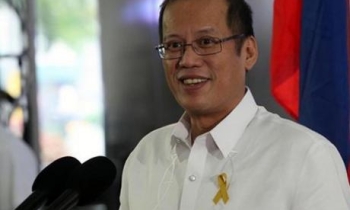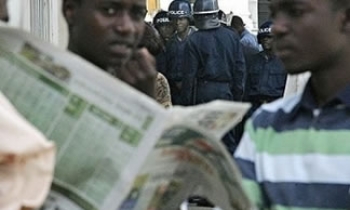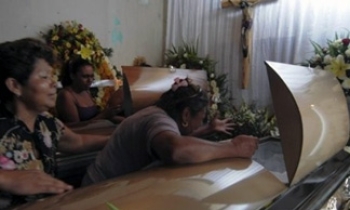CARACAS: Arturo Sarmiento speaks English polished at Sandhurst, the British military school. He made fortunes trading oil and importing whiskey. Now Sarmiento, just 35 and a staunch supporter of President Hugo Chávez, owns an expanding television network here.
As tempers flare around Chávez's decision not to renew the license of RCTV, the country's oldest broadcaster and a vocal critic, effectively shutting it down Sunday, a new media elite is emerging in Venezuela. It is made up of ideological devotees to Chávez, senior government officials and tycoons like Sarmiento.
That is a marked contrast with the state of the media when Chávez's rule began in 1999. Then, the industry was largely owned by monied interests hostile to Chávez. That markedly partisan old guard, his supporters say, actively sought to derail his actions during much of his presidency.
"With the polarization that's befallen Venezuela, media organizations have been used to cause political change," Sarmiento said in a recent interview. He said his ambitions for TeleCaribe, a private broadcaster he bought last year, were different: to provide programming tailored to regional audiences in Venezuela. "Media vehicles should not be engaged in politics," he said.
Governments focused on tightening their grip on power always have media management high on their agendas. Chávez has dueled with media opponents while fortifying news organizations loyal to him. For instance, newspapers favorable to the government have received nearly 12 times more government advertising, said Andrés Cañizalez, a researcher at Andrés Bello University, citing a study of four leading dailies.
"Previous administrations in Venezuela also used advertising as a way to consolidate media support," Cañizalez said. "The difference now is that the government has made growing its own media operations and combating its opponents in the media central elements of its political strategy."
In what may point to a rare example of widespread disagreement with the popular president, recent polls show that most Venezuelans oppose Chávez's decision not to renew RCTV's license.
Thousands of people marched through central Caracas on Saturday to RCTV's headquarters to show support for the network, following a protest by opposing groups late Friday in front of Globovisión, another dissident network, that left its building and neighboring office structures painted with pro-Chávez slogans.
The RCTV move has rallied the president's base. Anti-RCTV graffiti covers walls throughout Caracas alongside criticism of President George W. Bush, whom Chávez regularly derides. Chávez has described RCTV as "putchist," his disdain for the network having intensified since a group of military officers briefly ousted him in 2002.
The president accuses RCTV and other private broadcasters of having supported what amounted to a 48-hour coup. In RCTV's case, the government says the network colluded with the coup's conspirators by conducting a news blackout after Chávez's removal and broadcasting cartoons when he returned to office two days later.
As Chávez's political power has grown, with loyalists controlling the Supreme Court, the legislature and most state governments, RCTV has remained explicitly critical of Chávez. Two other nationwide broadcasters, Televen and Venevisión, have curtailed critical coverage. The cable news channel that was the object of pro-Chávez groups' ire Friday remains critical of Chávez but is viewed by a relatively small part of the population.
Chávez's partisans often say critical coverage of the government illustrates elitist and racist sentiments. Dissidents say the news media constitute their only outlet for expression, since other institutions are controlled by Chávez.
Meanwhile, Chávez's government has created an array of new state media ventures. When Chávez was first elected, the government had just one television station and two radio stations. Now there are four new television stations controlled by central and regional governments and seven new radio broadcasters.
Supporters of Chávez's decision to deny RCTV a new license point out that most news organizations in Venezuela remain in private hands. Influential newspapers like El Nacional and El Universal, two Caracas dailies, remain independent and their editorials are critical of Chávez.
Still, some of the country's largest private media groups show a trend toward far softer coverage of Chávez's government.
Readership and revenue have grown in recent years for more stridently partisan boosters of Chávez, like Diario Vea, a daily founded in 2004 and edited by Servando García Ponce, a former longtime correspondent for the Tass news agency in Venezuela.
Vea, whose pages are filled with government advertising, runs features on Communist history, like Ho Chi Minh's 1954 victory over the French at Dien Bien Phu, and columns by Venezuelans like Basem Tajeldine, who recently accused the Mossad, the Israeli intelligence agency, of attacks against Jews to justify what he called "Zionist" policies.
"Freedom of expression is flourishing in Venezuela," García Ponce said in an interview at the paper's new newsroom here in a fashionably remodeled industrial warehouse. "We are not repressive of minority opinions in Venezuela."
Yet the creation of yet another state broadcaster, by replacing RCTV with a new government broadcasting operation called Teves, has fueled growing international concern. Human Rights Watch recently called the license decision a "serious setback for freedom of expression in Venezuela."









